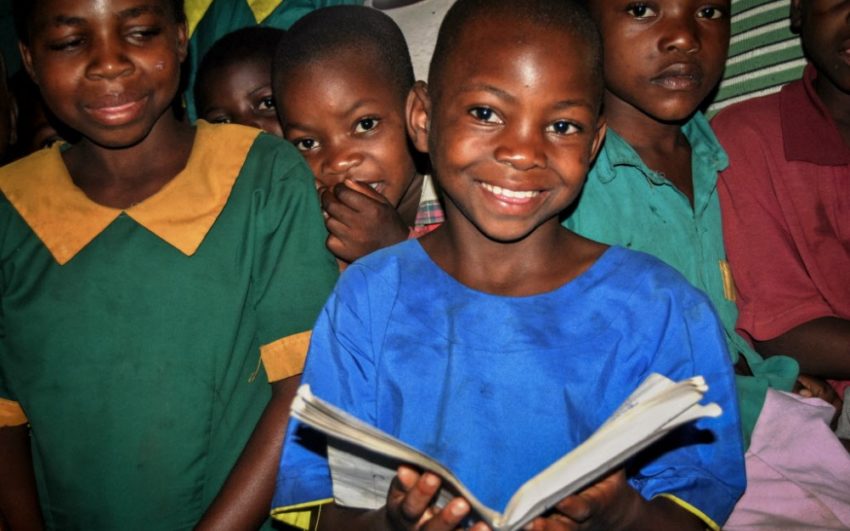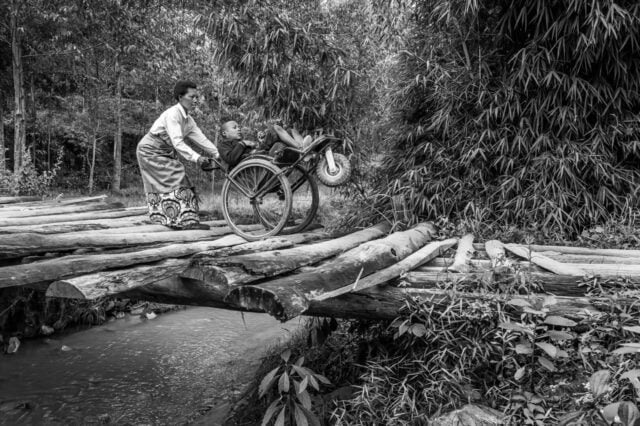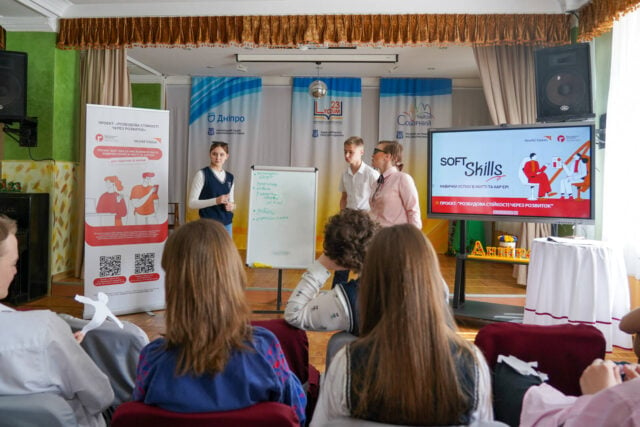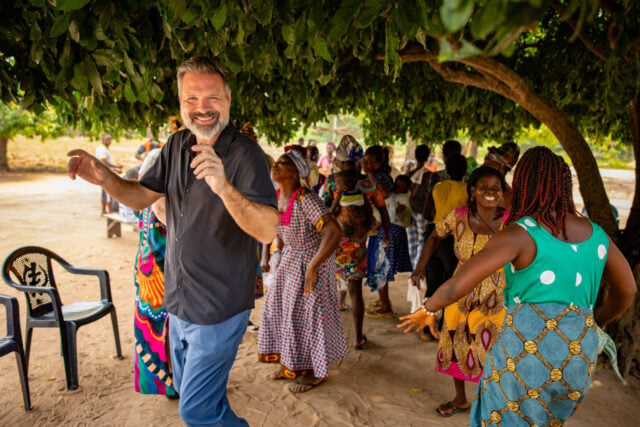Every day, 10-year-old Doreen Chingomo joins children from her village at Nazarene Church Camp in Kamwendo, Malawi, for after-school activities that reinforce their reading skills.
For Doreen, the daily practice has paid off. She’s moved from the bottom of the class — with a reputation for failure — to the top of her class of nearly 100 boys and girls.
Getrude Mabanya, a volunteer at Nazarene Church Camp, says that through the Literacy Boost program, World Vision supports the community with training and books that cultivate a love of reading.
At reading camps and clubs, Getrude and other volunteers teach children songs, games, and stories that reinforce what they learn in school. Children are paired with “reading buddies” to encourage them to read at home.
Through these literacy camps, we believe that our children will excel in their education.—Gertrude Mabanya, World Vision volunteer
There are book banks, portable libraries full of colorful storybooks. The books are often written by parents and community members, so they reflect values, traditions, language, and culture that are familiar to the children.
Parents also learn how to support their children’s education by creating reading corners or using found materials, like a door they can write on to practice their skills.
“World Vision has been telling us that our children’s education and future is our full responsibility, and through these literacy camps, we believe that our children will excel in their education,” Getrude says.
Giving children’s reading a boost
In 2011, World Vision, in partnership with Save the Children, began implementing Literacy Boost in selected development programs in Burundi, Ethiopia, Kenya, and Malawi. Rwanda was added in 2013.
The phenomenal success of the program in improving children’s literacy has prompted World Vision to expand into other countries in Africa and South Asia.
In 2015, Literacy Boost will be launched in India, Nepal, Senegal, Swaziland, and Tanzania.
The program bolsters literacy skills by providing further training to teachers, conducting regular assessments of children’s literacy skills, and mobilizing parents and communities to support children as they learn to read through fun, out-of-school activities.
In Ethiopia, after only six months of Literacy Boost interventions, 35% of students became new readers, compared to 19% in other schools. In Malawi, a baseline assessment showed only 2% of children could read a passage in their mother tongue. The last assessment showed 37% of students in Literacy Boost schools were able to read the passage, compared with 24% of students without the literacy program.
In Burundi, girls who participated in Literacy Boost increased their reading comprehension by 31%. The improvement equates to an additional two to five months of learning.
A global learning crisis
In January, World Vision completed the baseline assessment for Literacy Boost in Nepal, a vital step in identifying learning needs, tailoring programming, and estimating impact. Students will be reassessed after one year to measure Literacy Boost’s effectiveness and to make programming adjustments.
Linda Hiebert, World Vision’s senior director for education and life skills, says Literacy Boost is critical to World Vision achieving its goal of strengthening learning outcomes for children.
“There is a global learning crisis,” she says. “Even with greater access to schools, 250 million children are completing grade 4 without basic literacy and numeracy skills.”
Children who do not develop reading skills are on a lifetime trajectory of limited educational progress and limited economic opportunities. The economic growth rate of a country’s population is directly correlated to its educational achievement.
Linda says it’s critical that world leaders address the global learning crisis as they consider the post-2015 goals that will replace the Millennium Development Goals.
“Education leads to better health, better employment opportunities, and safer and more stable societies,” she says.
Charles Kabena of World Vision’s staff in Malawi and Bryna Jones of World Vision International contributed to this article.




